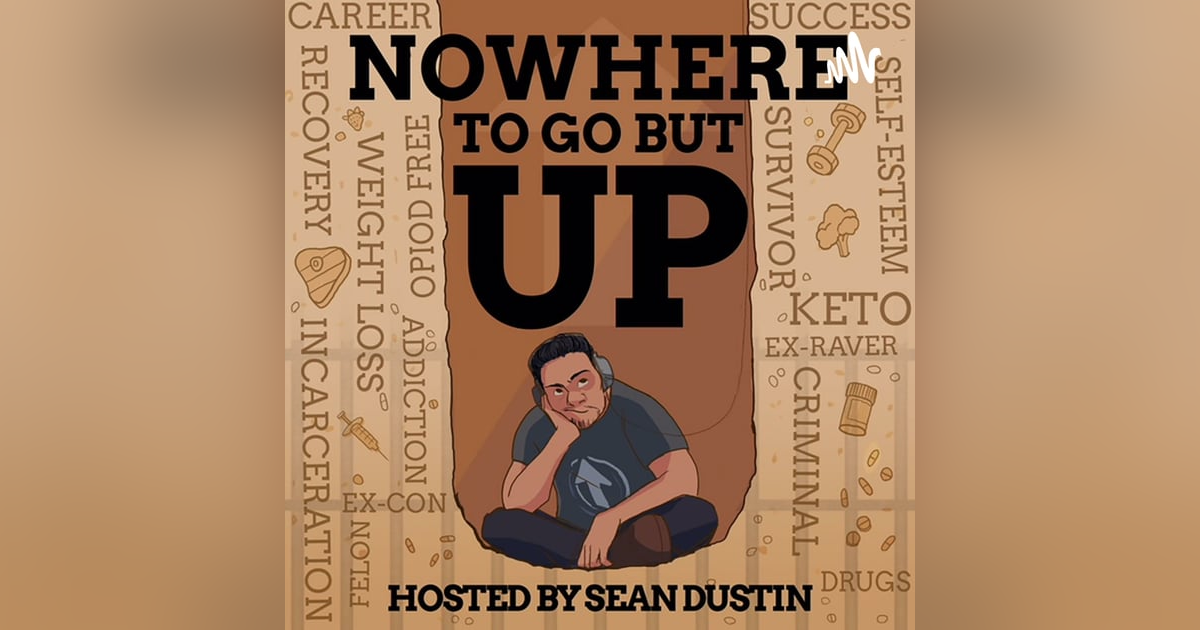#195 From Grief & Loss to Prison Reentry: A Diverse Discussion with Susan Casey and Sean Dustin
Susan Casey is a licensed clinical social worker who specializes in grief and loss. She trains therapists around the country on measurement-based care and focuses on grief and loss in her private practice. Susan is also launching a course on the therapeutic benefits of writing through grief and loss. Her interest in this field was sparked after the death of her younger brother in 2014, which was the most catastrophic event in her life. She had written her dissertation on the therapeutic benefits of writing through grief, loss, and trauma long before her brother's death. When her brother passed away, she tested her theory by blogging her way through her grief, which eventually led to her writing a book on sibling loss. Susan interviewed people from around the world who had lost a sibling, and it took her three and a half years to write the book. Additionally, Susan got certified as a bereavement group facilitator and ran bereavement groups at the Center for Grieving Children.
Susan believes that grief is not just about the death of a person, but it can also be about the ending of something. For instance, a person can grieve over the end of high school and the start of college. Susan's passion is to work with people who undergo major life transitions, and she feels that people don't talk about grief often because of societal messages that make people feel like they're complaining or whining if they talk about their grief.
In response to Sean Dustin's question about how therapists avoid taking their client's traumas or situations home with them, Susan explains that it is a challenge for most therapists because they are empaths and can feel the emotions in the room. It is essential to carry people's stories without feeling weighed down and sad and without taking on the emotions behind their stories. To avoid this, therapists need to intentionally work on setting down their emotions at the end of the day. Susan personally does healthy things like eating well, exercising, and moving the energy through her body to avoid feeling bogged down by the things that happen in the lives of the people who come to her for help.
Sean Dustin, a former inmate who spent time in federal prison, shifts the conversation to the justice system. The discussion is about the difficulty of re-entry into society for those who have spent time in prison. He, explains that most inmates do not think about reentry until they are close to being released. The main concern is survival, especially for those who are new to the system. However, those who spend significant amounts of time in prison, such as those serving long-term sentences, are less likely to re-offend when they are released. The problem lies with those who are serving shorter sentences, as they often do not have access to the necessary resources to successfully reintegrate into society. Dustin explains that there are waiting lists for therapy programs and other services, and even those who have five years or more left on their sentence are not guaranteed a spot. The lack of resources and focus on reentry contribute to the high recidivism rate. Dustin compares the situation to politicians who focus on getting reelected instead of dealing with their constituents. Susan Casey, the host of the podcast, agrees and adds that the high recidivism rate is also seen in juvenile detention centers.
Susan Casey and Sean Dustin talk about the correlation between the level of difficulty of re-entry and the length of time spent in prison. They also discuss the challenges faced by those with addiction issues, who may be afraid to relapse when they return to society. The lack of drug rehab facilities within prisons is also mentioned. Sean points out that people are often released back into the same environment they offended in, which can hinder their progress. He suggests that they should be released in a different area, away from familiar triggers and temptations. The conversation also touches on the importance of having coping mechanisms and tools to deal with triggers, especially for those with addiction issues. A tragic story of a young man who died of a drug overdose after being released from prison is shared, highlighting the need for better support systems for those leaving prison.
The conversation seems to shift again into the lack of freedom and how people are being tracked and controlled by the media, which is controlled by a few billionaires who also control other industries such as gas, oil, and pharma. The conversation also touches upon the rise of startup companies in the mental health field, which made access to mental health services easier during the pandemic. However, some of these companies have been involved in scandals and controversies, such as the case of Cerebral, which was under investigation for allowing young people to access controlled substances without proper consent and assessment.
You can watch the YouTube video here:
Joe Rogan and Dr. Phil episode:
https://open.spotify.com/episode/6bAfaDJakoQ3bIxLjASyxH?si=812467e495c440ab
You Can find Susan here:
You Can find Sean Dustin here:
#griefandloss #reentry #recidivism #trauma













